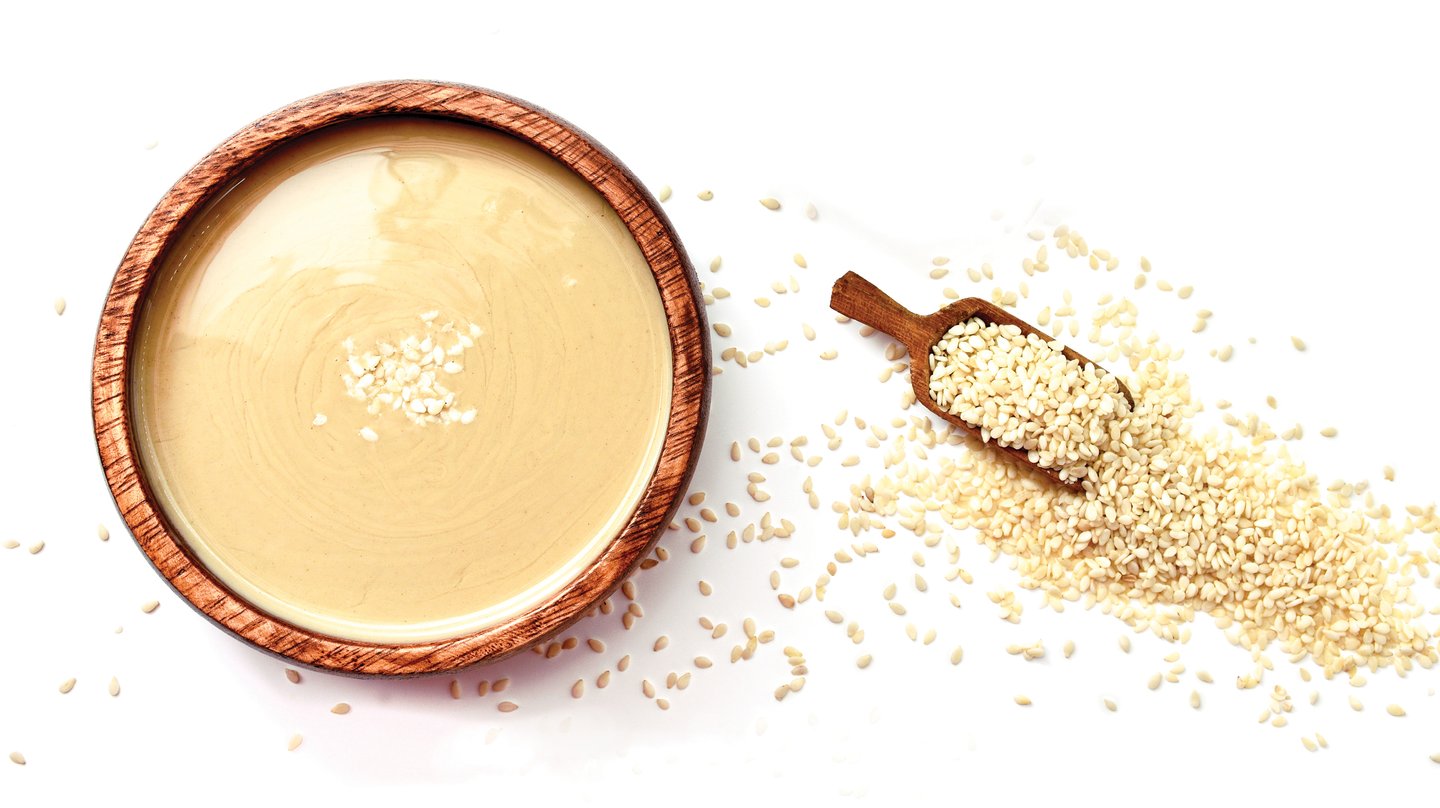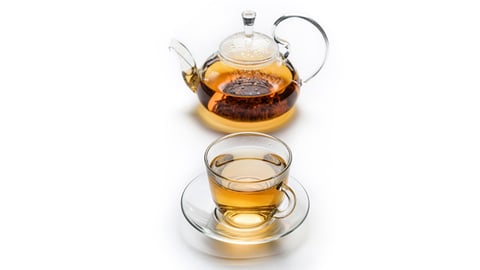Four things to know about tahini
Flavour enhancer
On its own, tahini — a paste made of ground sesame seeds that is traditionally used in Middle Eastern cuisine — “has a bitter flavour. It isn’t a pleasant taste experience for most people,” says Anne Lawrence, director of sales–industrial for Nuts to You Nut Butter, a Brantford, Ont.-based manufacturer of nut and seed butters including almond, peanut, pumpkin, sunflower and tahini.
As a taste enhancer, however, it’s a winner. For example, chickpeas are the base ingredient in hummus, but tahini gives the dip its distinctive creamy texture and slight nutty flavour. It’s also being swirled into salad dressings for added tang, incorporated into baked goods such as brownies and banana bread to create a sweet and savoury combination, added to soups to smooth out cream-free recipes and used as a drizzle over veggies. Some even spread it on toast with honey.
“It’s incredibly versatile, adding a bonus flavour to really anything you add it to,” explains Lawrence.
Anna Jane Daklala owns Secret Foods, which manufactures clean-label, tahinibased salad dressings in three flavours: lemon herb, smoked paprika and yuzu tamari ginger. “I’m Lebanese Canadian, so I grew up eating lots of tahini and noticed there wasn’t any tahini sauce on shelves,” says Daklala of launching the brand in March 2021 in 22 Calgary retailers.
Secret Foods is now sold in 500 grocery stores across Canada, including Whole Foods Market and Choices Markets locations in British Columbia; Safeway and Sobeys in Alberta; Metro in Quebec; and Fortinos and Healthy Planet stores in Ontario. “We’re usually listed in the natural aisle, as our customers want premium, natural alternatives to conventional grocery products,” she says.
Sizeable shift
Once primarily a pantry staple in Middle Eastern households, tahini is now more widely adopted — the proof is in the sales. Globally, in 2023, the tahini market totalled US$2.04 billion and is projected to rise to $3.69 billion by 2033, for a CAGR of 6.1%, reports Fact.MR.
“An ingredient you can get creative with, tahini had been overlooked for a long time,” says Digs Dorfman, CEO of Toronto grocery retailer The Sweet Potato, who likes to use tahini as a marinade on grilled meats. “Its popularity has steadily risen and now tahini is our third best-selling nut butter, behind peanut and almond.” (The Sweet Potato’s top-selling tahini brand is Nuts to You.)
Global launch pad
“Our research shows product launches with tahini have seen steady growth globally [of 5.9%] since 2021,” says Lu Ann Williams, global insights director at Innova Market Insights. New tahini products were mostly in spreads (45.3%), sauces and seasonings (19%) and confectionery (14.4%).
With tahini featuring as a product, claim and/or ingredient in 4.4% of all food and beverage launches in 2023, Canada ranked behind only the United States and Turkey in the condiment’s showing.
Sold at Canadian online retailer Natura Market, superfood bar brand Thunderbird launched Snickerdoodle Cashew Tahini last year. And Tahini Goddess, which is carried by such grocers as Montreal health food store Nature Santé, expanded its line of drinkable dressings last June to include classic tahini alongside chocolate, spicy chili and caesar.
Small but mighty
The sesame seeds that make up tahini might be small, but they’re packed with nutrients. High in protein, B vitamins, magnesium, iron, phosphorus and unsaturated fats, tahini is also rich in calcium, which is ideal for vegans and people who do not consume dairy. Three tablespoons of tahini provides nearly 20% of the daily recommended intake of calcium for a woman 14 to 49 years old, according to Osteoporosis Canada.
This article first appeared in Canadian Grocer’s May 2024 issue.





